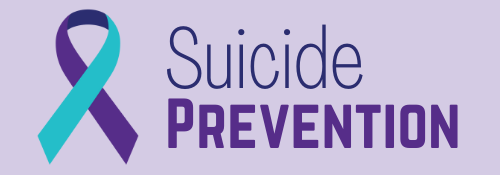
September is Suicide Prevention Month. We can all help prevent suicide. And Wyandot Behavioral Health Network is making changes to reduce suicide risk for the individuals we serve and for the larger community.
Nearly two years ago, Wyandot BHN began the process of implementing the Zero Suicide framework. The Zero Suicide framework focuses on training all employees – from direct service providers to organizational leadership – about the warning signs of suicide and how to care for individuals at risk for suicide. The goal is to prevent suicide deaths among the individuals we serve.
As part of the implementation process, we have established an organization-wide procedure on how we respond to and care for individuals who express suicidal thoughts or who have had attempts at self-harm. We will now be screening all clients we come into contact with for suicide risk. Individuals who are determined to be at a higher risk for suicide will be placed in a suicide care pathway, which is a defined routine of care that the individual’s provider will follow until the client is no longer at risk.
"The idea is for the community to experience zero suicides and to not experience that trauma."
A majority of our staff from all areas of the network have already received training in screening, assessment and means restriction, thanks in large part to the Kansas Department of Health and Environment (KDHE).
“We couldn’t have trained so many people without them stepping in,” says Rachel Erpelding, Executive Director for Kim Wilson Housing. “It was an amazing thing that they did for us.”
Erpelding is coordinating Wyandot BHN’s Zero Suicide efforts and says the implementation of the Zero Suicide model will have an impact beyond the walls of our treatment facilities.
“We’re also training our staff to be able to recognize warning signs of suicide in the community. It gives us a greater ability to reduce hospitalizations for self harm,” says Erpelding. “The idea is for the community to experience zero suicides and to not experience that trauma.”
Given the increase in anxiety and depression as a result of the pandemic and recent racial equity and justice issues, Erpelding says it is important for Wyandot BHN to be implementing Zero Suicide now. But she wants everyone in the community to take an active role in helping to prevent suicide. And that starts with knowing the warning signs and not being afraid to ask if someone is considering suicide.
“There is this belief that if you ask someone if they are thinking about killing themselves, then you are going to put that thought in their head. But you won’t,” says Erpelding. “Sometimes people are waiting for somebody to notice that something is wrong. They’re waiting for someone to ask that question.”
Erpelding says there some warning signs people should look out for, including someone withdrawing or feeling like a burden, buying a weapon for the first time or saying goodbye to people and giving possessions away. If you notice these behaviors in someone you know, ask them directly if they are thinking about killing themselves and listen without judgment. Then stay with them and help connect them to additional support.
If you or someone you know is having thoughts of suicide, know that help is available 24/7. You can reach the National Suicide Prevention Hotline by calling 1-800-273-8255. Wyandot BHN’s 24/7 crisis line is available by calling 913-788-4200.
